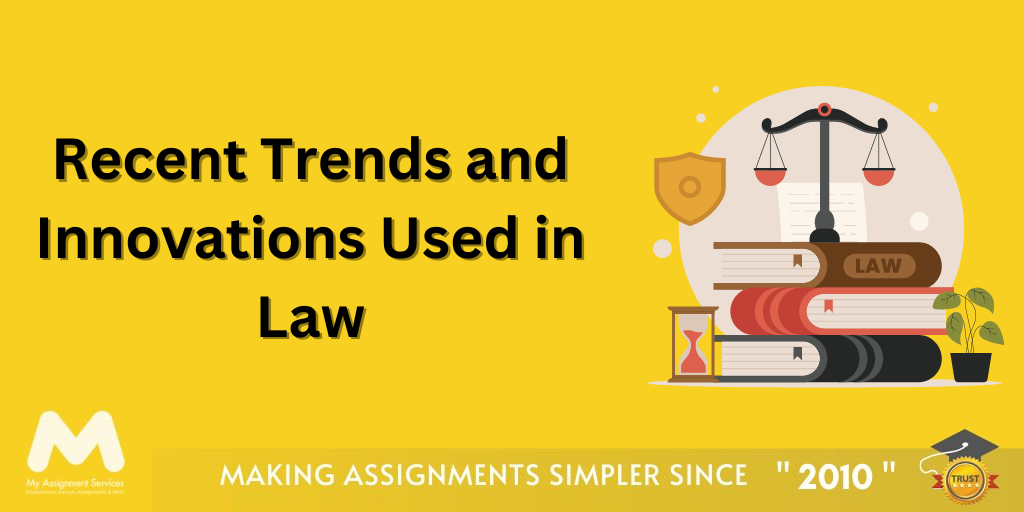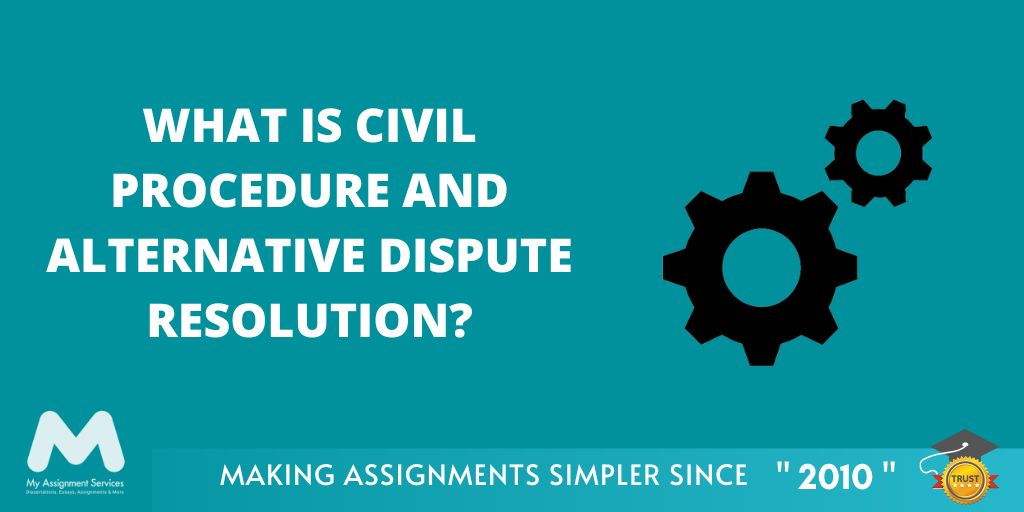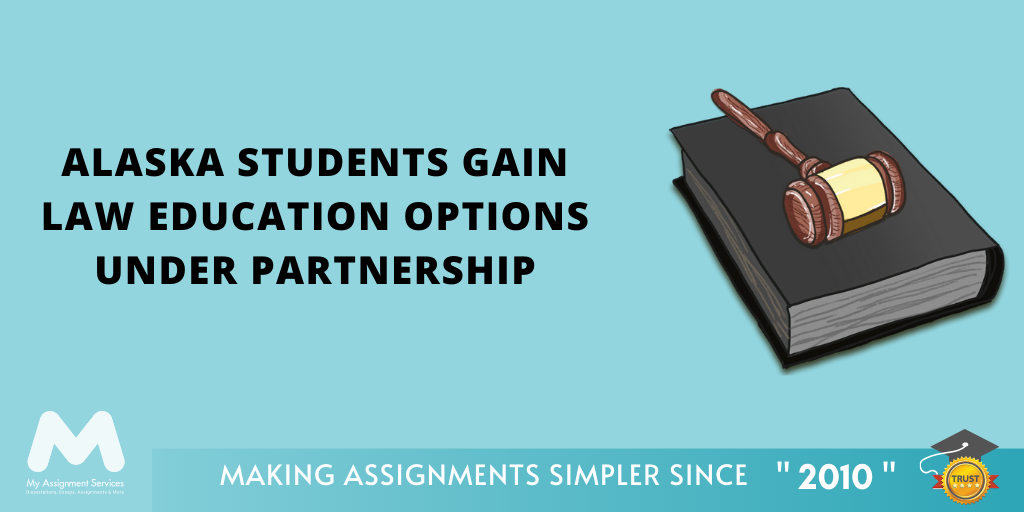
Commercial law primarily deals with the aspects of business that involves marketing, advertising, collection, bankruptcy, contracts, banking, transactions, etc. My Assignment Services is internationally recognized for its qualitative assignment writing help at affordable prices. Over the years, a number of academic students have trusted our assignment writing service and have been taking our commercial law essay assignment help from professional experts. We offer commercial law assignment help to students in order to help them in scoring high distinction grades. The area of commercial law demands deep understanding of the subject due to which students always seek professional help in writing their academic documents. My Assignment Services is one of the top most assignment help providers across the globe. Our dedicated academic writers are professional experts and have relevant experience in writing commercial law assignments. Our team provides assistance in every domain, no matter if it is an essay, dissertation, thesis, research paper etc. We also have an editorial team that ensures that no assignment is delivered without quality check.
The experts at My Assignment Services hold practical knowledge of the subject and make sure that their knowledge is reflected in all academic documents formulated by them. Scholars pursuing law usually face issues in completing their academic documents. Some of the basic problems are time crunch, lack of skills, assembling thoughts, etc. Students usually get affected by these problems and they seek help from commercial law assignment writing service. My Assignment Services ensure that no query is left unanswered; our support team is always available to resolve your queries as soon as possible. We are famous for delivering the academic document within the hand in time along with qualitative information from credible sources. If you still doubt our services then have a look at the below mentioned details where we have explained how our team handles the assignment writing process.
How the student approached us?
Ron from Australia approached our team by writing an email at help@myassignmentservices.com. Our team reverted back and took all the details of his assignment writing task and served him with a desirable quote. Ron’s case was an exceptional one where he demanded the assignment to be completed within two days as he was running short of time. Our team took this task as a challenge and provided the assignment details to the best law expert. Assignment details are as follows: Subject- Commercial Law Word Count- 2000 Quality Words Client - Australia References APA Style
ASSIGNMENT QUESTION:
The purpose of the assignment is for you to undertake independent research into a particular aspect of law, to reflect on and consider particular legal issues and to apply your legal skills. It is important for you to think through how to structure and present your arguments, and to discuss what the law is in a particular area. We are looking for a demonstrated understanding of commercial law and this requires you to use substantive law to support your argument. The length of the assignment is to be 2000 words.Please provide a word count with the assignment. You do not need to include the references in the word count. In regard to your referencing, a reference list is required and not a bibliography. In writing your responses, make sure you answer the questions asked and address the criteria outlined in the Course Description. Most marks are given for analysis; very few marks are given for merelyrestating information (including the facts).You should note that the most important assessmentcriterion for this task is your ability to applyknowledge and present arguments to justify your analysis. Take care also to follow the presentation requirements and to note the warning about plagiarism in theCourse Description. Topic: Complete ALL THREE QUESTIONS in this assignment. QUESTION 1:Rodney and Penelope live together as domestic partners in a de facto relationship. Each week Rodney orders groceries online and receives a delivery of groceries from the local TN supermarket where Penelope holds a credit account is known to regularly pay outamountsput on that account for the groceries that Rodneyorders. Penelope has asked Rodney not to order expensive or luxury items without Penelope first agreeing. Last week Rodney placedtwo separate orders:he orders a $2,500 high-end microwave oven and weekly groceries. If Rodney had asked about the microwave oven Penelope would never have agreed to its purchase. When the account arrives for payment, Penelope refuses to pay on the ground that Rodney had no authority to commit to Penelope’s credit account liability for the microwave oven. However, after speaking with Rodney, Penelope subsequently agrees to both transactions and pays for both. Consider the legal issues arising in agency from this scenario. (12 ½ marks) QUESTION 2:MODO, a livestock supplies company, was considering opening an office in Ararat. Tim is an office assistant for MODO. Tim was instructed to visit Ararat, make enquiries on retail locations available to let and then report back to head office with a recommendation. When Tim arrived in Ararat, he evaluated retail premisesand made enquires on retail locations and in his excitement he executed on behalf of MODO a written lease arrangement with Adam. When the copy of the executed lease arrives via email at MODO headquarters in Adelaide, MODO refuses to agree to the lease of the premises and so Adam takes legal action against MODO. Identify the legal issues arising in agency from this scenario. (12 ½ marks) QUESTION 3:Discuss the role of apparent authority toboth establishing: (a) the existence of the principal-agent relationship, and; (b) the scope of the agent’s power to bind the principal with third parties. (10 marks 5 marks each for (a) and (b))
ASSIGNMENT SOLUTION:
Solution 1
Issue
- Whether there is a partnership amid Rodney and Penelope?
- Whether the local TN supermarket can hold Rodney and Penelope liable for the outstanding amount?
Law In Australia, one of the forms in which a business can be established is partnership. A partnership is a kind of business where relationship is established amid two or more persons who intent to carry on the business with the aim to earn profits and divide losses as mutually decided amid them (Smith v Anderson (1880). The business is carried out with a common objective and is of continuous nature (Green v Beesley (1835). This scheme of business is partnership and is called a partnership firm. (Sydney, 2017) The people who have established the partnership are called partners. Now, there are some of the most important principles that emerge from a partnership.
- There is presence of the law of agency, that is, the partners are the agents of each other and of the firm and vice versa. The law of agency establishes that the act of one partner will bind all the other partners and the firm and vice versa (Lang v James Morrison & Co Ltd (1911).
- The liability of the partners is joint and severable, that is, if the liability of one partner is not met by him then the same will be borne by other partners (Walker and others v European Electronics Pty Ltd (1990-1991).
- Any transaction which is entered by the partner if found to be beyond the scope of his authority, then, the same will be binding upon the partners, if ratified by the firm (Mann v Hulme (1961).
- The firm is liable to bind by the transactions entered into by the partner even if the same is outside his authority provided the transaction is entered into by the partner in his ostensible authority or apparent authority, that is, the person with whom the partner is dealing believes in good faith that the partner has some authority provided the firm has made some kind of overt act because of which the third party believes that the partner has authority (National Commercial Banking Corporation of Australia Ltd v Batty (1986).
Thus, there is presence of principle of agency which binds all the partners and the firm towards each other and vice versa. Now, when any person gave a representation to any other person and such other person acts upon such representation, then the person who has represented is estopped from denying his promises under the law of estoppel (Re Buchanan & Co (1876)). The person who has given promises cannot back out from his words and must fulfil his promises.
Application
The law is now applied to the facts of the case.
- As per the facts, Rodney and Penelope live together as domestic partners in a de facto relationship. Rodney normally orders groceries online and receives a delivery of groceries from the local TN supermarket. There is a credit account in the name of Penelope and normally set off the credit account and pays for the orders that are ordered by Rodney.
Now, it is submitted that both Rodney and Penelope are buying the groceries and are paying for the same regularly. But the actions of Rodney and Penelope are not carried out with the main aim to earn profits. Rather, they are not carrying any kind of business amid themselves which is of continuous nature to earn profits and share losses. Thus, as per Keith Spicer Ltd v Mansell [1970] the elements of the principle must be present to establish a partnership. Thus, there is no partnership that can be established amid them. So, the local TN supermarket cannot sue Penelope and Rodney under the law of partnership as there was no partnership at the first place at all.
- Later, Penelope agrees to pay for both the transactions, that is, a $2,500 high-end microwave oven and weekly groceries. Penelope has specifically asked Rodney not to buy expensive items with his approval. However, still Rodney ordered two expensive items. Though there is no partnership amid the two but Penelope agreed to reimburse the expenses that is established Rodney. Thus, by applying the principle of promissory estoppel and as held out in Re Buchanan & Co (1876), the local TN supermarket can sue Penelope for the expenses as Penelope has agreed to cover the loss sustained by Rodney considering him as his agent and now cannot go back on his words.
Conclusion
It is concluded that there is no partnership amid Penelope and Rodney as the acts amid them are not to carry out any business of continuous nature and to earn profits and share losses. But, Penelope later agreed to pay for the expenses of Rodney and thus agrees to reimburse the expenses that are incurred by Rodney as Rodney is acting as his agent even though he acted outside his scope of authority. Thus, by applying the principle of promissory estoppel Penelope will pay to the local TN supermarket as agreed amid them.
Solution 2
Issue Whether the lease executed by Tim (on behalf of MODO) with Adam is valid and can Adam take legal action against MODO?
Law
In law, one of the ways in which a business can be established is partnership. In partnership, two or more person establishes business of continuous nature with the aim to earn profits and share losses. The persons who manage the firm are called partners. The partners are authorized to bind the firm by their actions and any contract that is established by the partner with an outsider is valid provided the same is within the authority of the partner (Re Griffin; Ex parte Board of Trade (1890). (Sydney, 2017) But, when a person (who does not have the requisite authority) enters into a contract with an outsider then such contract can be rebutted by the firm on the basis that the person does not have the requisite authority Freeman & Lockyer (A Firm) v Buckhurst Park Properties (Mangal) Ltd [1964]). (Krawitz A, 2002) But, this act of the firm that is, giving no recognition to the contract that is made by the agent of the firm by exceeding his authority is against the interest of the outsider. To protect the interest of an outsider, the rule of Indoor management was established according to which if an outsider is dealing with an agent of the firm believing that the agent has the requisite authority to bind the firm and is acting in good faith, then, any transaction entered with such an agent is binding upon the firm (Pyramid Building Society v Scorpion Hotels Pty Ltd (1996). There must be some overt act which must be undertaken by the firm which made an outsider believe that the agent has the authority to bind the firm. Further, an outsider must be acting in good faith (Brick and Pipe Industries Ltd v Occidental Life Nominees Pty Ltd (1991)). (Krawitz A, 2002) Thus, in partnerships, the rule of indoor management is very prevalent so as to protect the interest of an outsider provided the outsider is acting in good faith and honesty.
Application
Now, MODO was a company and is considering to open an office in Ararat. Tim (office assistant) was given the task of visiting Ararat, make enquiries on retail locations and report back to head office with a recommendation. Thus, Tim was not authorized to make any kind of contract on behalf of MODO. However, when Tim arrived in Ararat, he evaluated retail premises, made enquire and executed a lease on behalf of MODO with Adam. Thus, the actual authority that is provided to Tim is not to execute any contract. Such an act is outside his actual authority (Crabtree-Vickers Pty Ltd v Australian Direct Mail Advertising & Addressing Co Pty Ltd (1975). It is submitted that Tim was not authorized to undertake any kind of contract on behalf of MODO. The action of Tim, that is, to execute a lease on behalf of MODO is an act which is outside the scope of the authority that is granted to MODO. So, when the copy of the executed lease arrives via email at MODO headquarters, then, MODO can refuses to agree with the lease. However, by applying Indoor Management rule, it is submitted that if Adam is under the impression that Tim is authorized to execute lease on behalf of MODO and is acting under good faith, then, the contract that is established by Tim on behalf of MODO is valid and Adam can sue MODO for the execution of lease. MODO must have made some representation upon which Adam must have relied on good faith making the acts of Tim falling within the rule of Indoor management and binding the lease on MODO and Adam.
Conclusion
Thus, by applying Indoor Management Rule, it is submitted that Adam can sue MODO and execute the lease that is entered by Tim with Adam, provided, Adam is acting in good faith. Solution 3 Discuss the role of apparent authority:
- The existence of the principal-agent relationship
When any person is appointed by a person to represent him in front of third parties, then, the person who has appointed any other person is called principle and the other person is his agent. The principle can grant authorities to the agent. One such authority is apparent authority. In a principle agent relationship, the principle normally gave directions and powers within which the agent has to act and represent the principle. But many a times there is no direct authority that is provided by the principle to the agent, but, he portrays the agent in such a manner which depict that the agent has authority to bind the principle. In such situation, if the outsiders deals with the agent of the firm on the belief that the agent has the require authority to bind the firm, then, the transactions entered amid by such an agent is binding upon the firm as per the apparent authority that is granted to the agent. It is also called ostensible authority (Wilson v Tumman (1843). It is the authority which moves beyond the limit of the authority that is exchanged amid the Principal and the agent. It is what is appeared to an outsider regardless of the fact whether it is given to an agent by his principle of not. But the belief of an outsider over the authority must be honest and in good faith (Union Bank of Australia Ltd v Rudder (1911)).
- The scope of the agent’s power to bind the principal with third parties.
An agent can bind the principle with third parties under the role of apparent authority. As already submitted, an apparent authority is an authority which is granted to an agent by the principal not actually, that is, directly either in the oral or written form or implied form, but which is portrayed by the principle to an outsider that he agent do possess some kind of authority and thus can bind the principle. When the outsider on the belief of such authority that is portrayed by the principle enters into the contract with the agent (who has the apparent authority), then, a valid contract is performed amid the parties. The principal cannot deny the fact that the agent does not have the requisite authority. The authority which is granted is apparent and thus makes the outsider eligible to sue the principal for any contract that is entered by the agent within his apparent authority. In the leading case of Freeman & Lockyer (A Firm) v Buckhurst Park Properties (Mangal) Ltd [1964], it was held that there must be some kind of representation by the principal who has the authority and which depicts that an authority is provided to any other person and the outsider after relying on such representation has entered into a contract with the agent of the representor. In such situation, the agent has the power to bind the principal with the third party.
Reference List
Books/Articles/Journals Krawitz A (2002) Protecting Outsiders to Corporate Contracts in Australia, Volume 9, Number 3 (September 2002). Sydney (2017) Partnership - topic 3. Case laws Brick and Pipe Industries Ltd v Occidental Life Nominees Pty Ltd (1991) 6 ACSR 464 at 476. Crabtree-Vickers Pty Ltd v Australian Direct Mail Advertising & Addressing Co Pty Ltd (1975) 133 CLR 72 Freeman & Lockyer (A Firm) v Buckhurst Park Properties (Mangal) Ltd [1964] 2 QB 480 at 502 Green v Beesley (1835). Keith Spicer Ltd v Mansell [1970] 1 All ER 462. Lang v James Morrison & Co Ltd (1911) 13 CLR 1 at 11. Mann v Hulme (1961) 35 ALJR 153. National Commercial Banking Corporation of Australia Ltd v Batty (1986) 60 ALJR 379. Pyramid Building Society v Scorpion Hotels Pty Ltd (1996) 14 ACLC 679 Re Buchanan & Co (1876) 4 QSCR 202. Re Griffin; Ex parte Board of Trade (1890) 60 LJQB 235 Smith v Anderson (1880) 15 Ch D 247. Walker and others v European Electronics Pty Ltd (1990-1991) 23 NSWLR 1. Wilson v Tumman (1843) 134 ER 879
At My Assignment Services our primary aim of writing this blog is to show students how well our experts can handle your assignments. We hope that our commercial law assignment sample was able to clear your doubts. Our law assignment experts guarantee to deliver students with completely error free and plagiarism free assignments within the given period of time. My Assignment Services does not believe in making false promises as we work to build a strong bond with students. So, do not think more and avail premium quality assignment writing service at guaranteed low prices.
Related Study Materials
Our Experts can answer your Assignment questions instantly.
Ask Question0 Comment
Get It Done! Today
1,212,718Orders
4.9/5Rating
5,063Experts













Loved reading this Blog? Share your valuable thoughts in the comment section.
Add comment